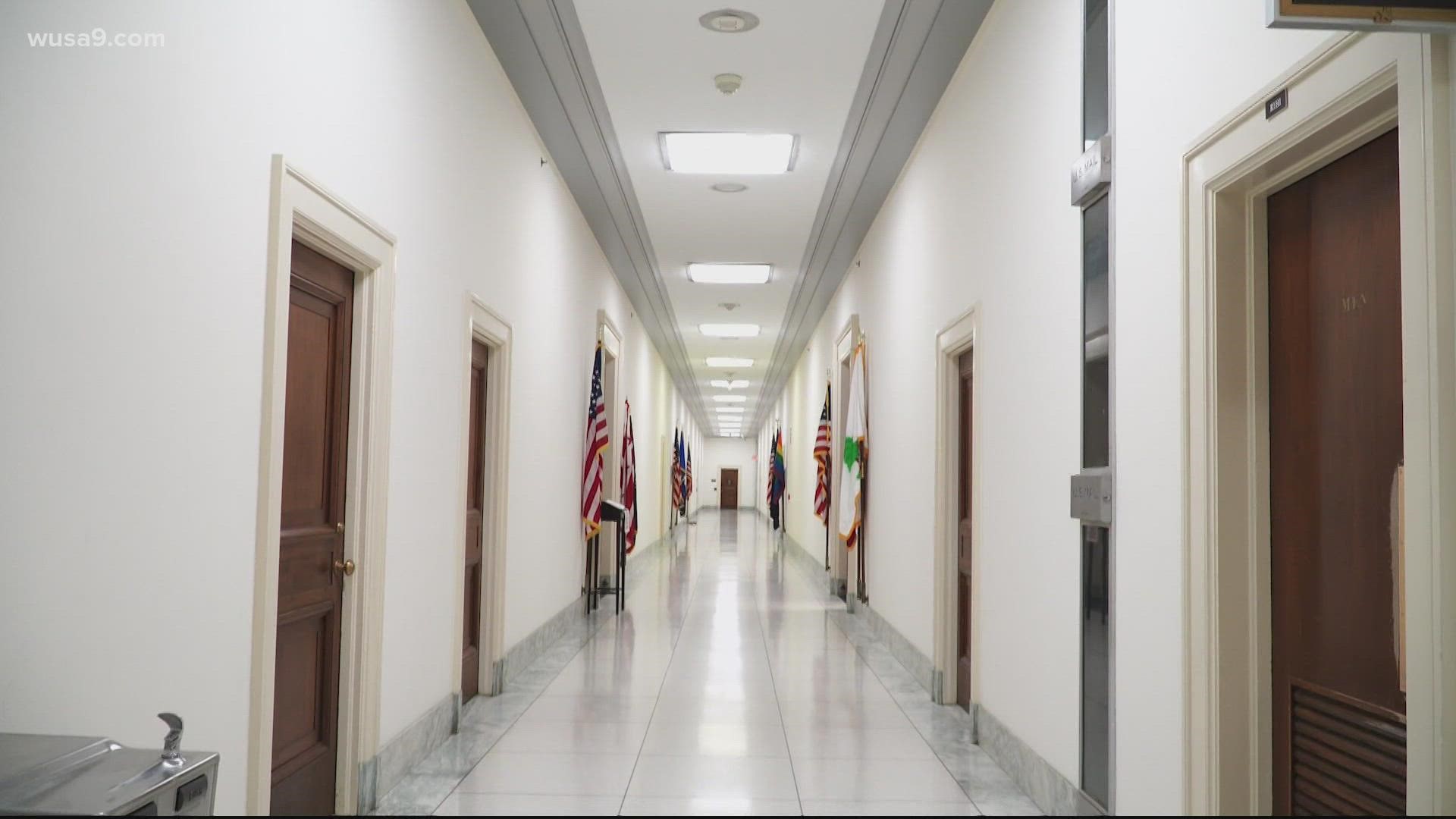WASHINGTON — For 35-year-old Rich Luchette, a position as a senior adviser to Rep. David N. Cicilline (D-RI) was something, he worked his whole life for.
“It was the best job that I've ever had,” Luchette said. “I got to be a witness to history throughout the close to 10 years that I was up there.”
But on January 6, 2021, Luchette found himself in a position he never imagined: trapped at his desk inside the Rayburn House Office Building for 12 hours as thousands of rioters led an assault on the U.S. Capitol.
“At some point, we started receiving the reports that pipe bombs were found outside of the RNC and the DNC,” Luchette said.
“My desk was right by a window, so I closed the blinds for that window, moved to a desk that was further away,” Luchette recalled, “since we didn't know how organized this was, how bad it was going to get at that point.”
Luchette said he tried to throw himself back into his work in the weeks after the insurrection, but found quickly he had not properly processed everything he'd experienced.
“I remember there was one night specifically. I was in my apartment building, I had gone to sleep around 11 or 12 at night, and I had some neighbors who were throwing a party," he remembered. "And it was probably about 2 or 3 in the morning their party was still going and I got woken up. And you know, I was sort of in that half-awake, half-asleep phase where you don't really know what's going on.
“And in my brain, the first thought that I had was, ‘Are there Proud Boys assembling outside? What's going on?'” Luchette said, referring to the far-right group accused of helping to encourage and lead rioters on January 6.
"It took me a couple minutes to realize, oh, no, the neighbors are just still having a party that's going. So that was when I realized okay, I need to deal with this, confront it and process it. And I realized that it was going to be something that would stick with me for a while.”
RELATED: Proud Boys member pleads guilty, agrees to flip on Capitol Riot co-defendants as part of deal
Plagued by a cloud of uncertainty about what life would be like after the Capitol riot, Luchette made the difficult decision to resign his position on Capitol Hill in July.
He left behind a Capitol complex that looked much different than it did before the insurrection — with heavily armed troops and 10-foot-high fencing.
“And by then it was like an apocalyptic scene,” said Zoe Bluffstone, a congressional communications director from Portland. “Just enormous crews of National Guard and police. Going to and from work was extremely unsettling and made me think about a lot of a lot of other places I've seen on television but never had to work within such a heavily armed scene.”
Bluffstone said the months that followed brought more frightening moments.
In April, U.S. Capitol Police Officer Billy Evans was killed when a knife wielding man plowed his car into officers standing in front of a barricade protecting a Capitol entrance. The suspect was shot and killed by another officer after he climbed out of his vehicle, knife in hand.
Then, in August, a Trump supporter angry at President Joe Biden livestreamed himself parked outside the Library of Congress, claiming his pickup truck was wired with explosives. Law enforcement eventually figured out he was lying, but only after a tense, hours-long standoff with police where, once again, Bluffstone worried if she would be caught in the cross fire.
“It was scary to know that someone was targeting us where we're just trying to get work done," she said.
The stress has taken a toll USCP, too. The department says more 100 officers left the force in 2021 — a big jump over the previous year.
The departures come at a time the department says the number of threats being made against members of Congress or the Capitol has soared to about 9,600 in the 12 months since January 6. That’s compared to about 4,000 threats in 2017.
Despite it all, Bluffstone remains committed to her job on the Hill. For now.
“It's sort of a shadow that can sneak up on you,” she said. “And it's sort of punctuated by some of the security threats that we've had recently.
“I try and forget just so I can be productive at work and not feel like I'm risking anything when I'm at work. But in the end, it is punctuated by these moments where you're like, do we have to evacuate again? Is it real? Is it a drill? It's hard to tell.”
Despite those major staffing shortages Capitol Police Chief Tom Manger testified before Congress that his department is making progress is addressing “critical deficiencies” exposed during the January 6 attack. They include improvements to sharing intelligence about threats of violence between law enforcement agencies, something which plagued law enforcement’s response during the Capitol Riot.
We're tracking all of the arrests, charges and investigations into the January 6 assault on the Capitol. Sign up for our Capitol Breach Newsletter here so that you never miss an update.

